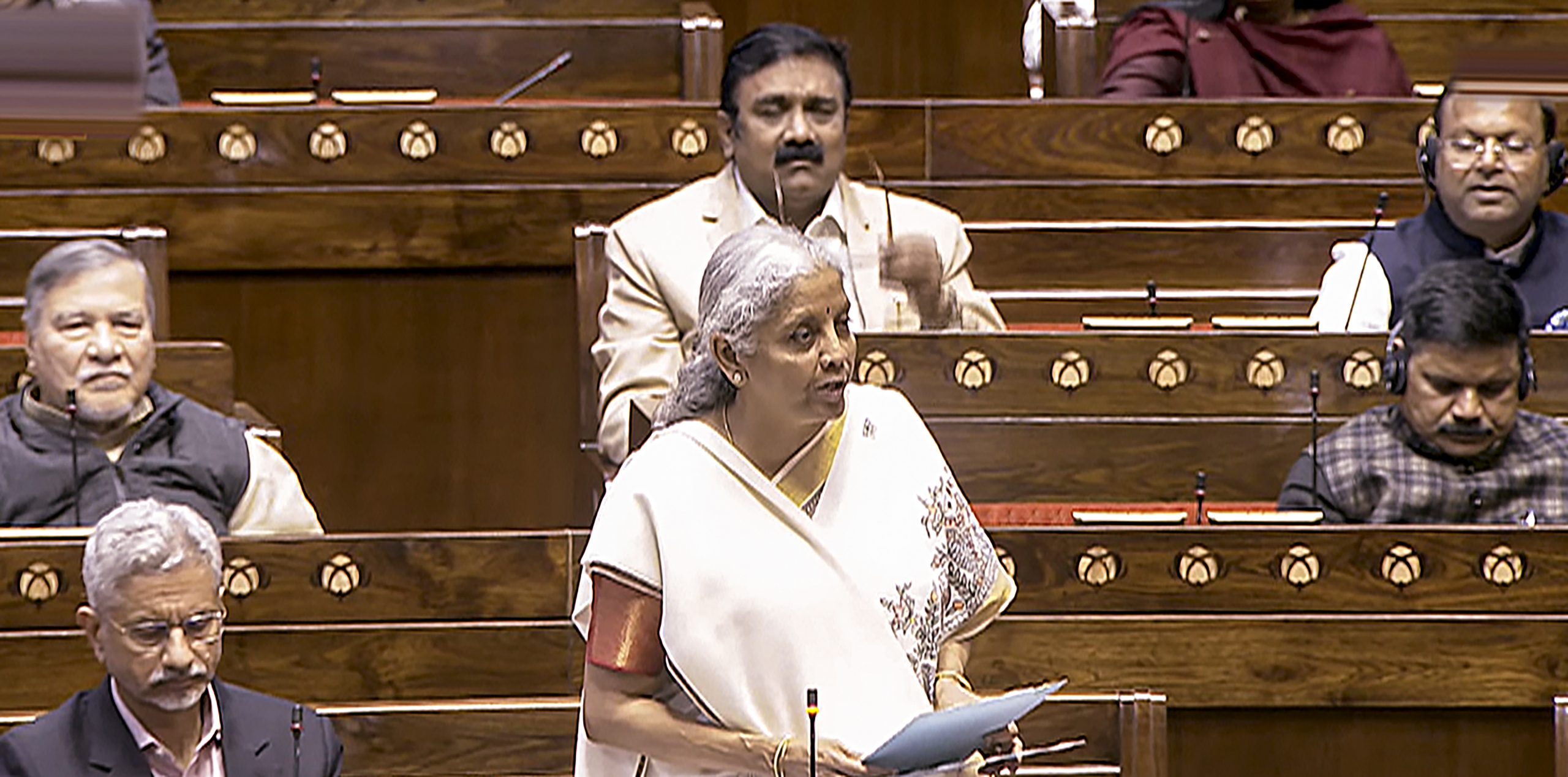- Saturday, April 19, 2025
Opposition members opposed the Bill at the introduction stage but the House passed a motion by voice vote

By: India Weekly
FINANCE MINISTER Nirmala Sitharaman on Thursday (13) introduced the Income Tax Bill, 2025, in the Lok Sabha and urged Speaker Om Birla to refer it to a select committee of the House.
Opposition members opposed the Bill at the introduction stage but the House passed a motion by voice vote for its introduction.
The new Bill will come into effect from April 1, 2026, after it is vetted by the Standing Committee and cleared by Parliament.
While moving the Bill for introduction, Sitharaman urged Birla to refer the draft law to a select committee of the House, which will submit its report by the first day of the next session.
She urged the speaker to take a call on the proposed panel’s composition and rules.
The much-anticipated Bill aims to simplify language while removing provisos and explanations.
The bill will replace terminologies like assessment and previous year with easier-to-understand ‘tax year’ as part of move to simplify language while removing provisos and explanations.
The Income Tax Bill, 2025, will replace 298 sections and 14 schedules in the six-decade-old voluminous legislations, with a 622 page new law enshrined in 526 sections, 23 chapters and 16 schedules.
The Bill introduces a new concept of ‘tax year’ as the 12-month period beginning from April 1. This would replace the present concept of assessment and previous year.
Currently, income earned in the previous year (PY), say in the year April 2024 to March 2025, will be assessed in assessment year (AY) 2025-26.
The new bill has omitted redundant sections, like those relating to Fringe Benefit Tax.
The Bill is free from ‘explanations or provisos’, thereby making it easier to read and comprehend.
Also, the word ‘notwithstanding’, which was used excessively in the Income Tax Act, 1961, has been done away with in the new Bill and almost everywhere replaced with the term ‘irrespective’.
The Bill uses shorter sentences and has been made reader-friendly with the use of tables and formulae.
Tables have been provided for provisions relating to TDS, presumptive taxation, salaries, and deductions for bad debt .
The ‘Taxpayer’s Charter’ has been included in the Bill which outlines the rights and obligations of the taxpayers.
Non-resident Indians
The bill introduces significant changes impacting Non-Resident Indians (NRIs) and foreign companies, Economic Times reports.
It clarifies tax liabilities, introduces exemptions, and outlines stricter compliance requirements.
The bill has new measures for recovery, withholding tax, and stricter departure rules, but has retained the tax rates for dividends and interest income.
Those planning to set up businesses in India have been advised to consult tax advisors to ensure full compliance.